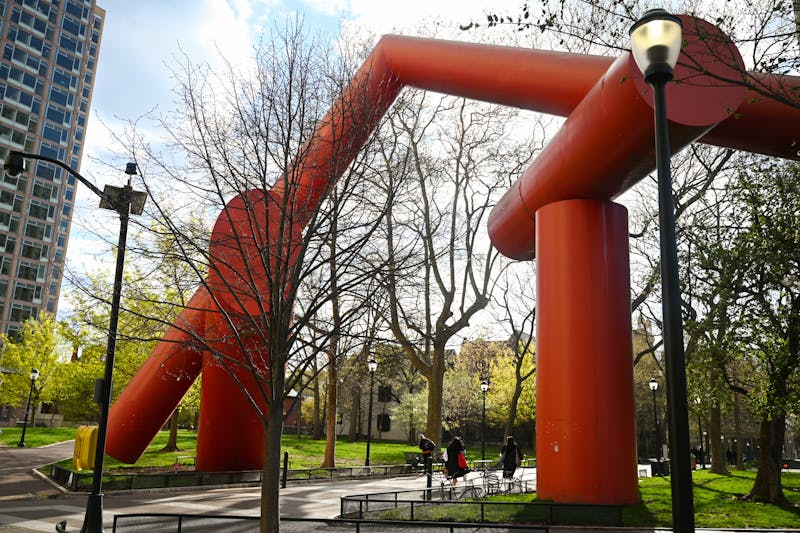It's no secret that religious fundamentalist groups and gay rights activists don't usually support each others' causes. But thanks to Thor Halvorssen, a balance has been struck between the two on many a college campus. Halvorssen, a 1996 College graduate, addressed a group of 25 people -- only a few of whom were students -- at the Newman Center last Thursday night on the topic of "Political Correctness versus Religious Liberty on Campus." Halvorssen is the executive director of the Foundation for Individual Rights in Education, Inc. -- a non-profit educational organization dedicated to civil rights and co-founded by History Professor Alan Kors. The event, sponsored by the University's Orthodox Christian Fellowship, is the first in the organization's Distinguished Guest Lecture Series, which will bring seven speakers to campus over the 2000-2001 school year. Halvorssen focused on controversies on various college campuses that have pitted gay-rights advocacy groups against selected student organizations -- in particular, evangelical Christian groups. Halvorssen recalled a case in which a religious group at Tufts University was barred from campus because it would not allow a homosexual to hold a leadership position. The group was eventually reinstated after FIRE negotiated with Tufts' administration. Halvorssen noted that FIRE is working on nine different university campuses to help defend religious groups that have been punished for not allowing gays to hold leadership positions or have otherwise allegedly discriminated against gays. "There's a danger in mandatory political correctness," Halvorssen said. "It stifles free speech and student life in general." Halvorssen also highlighted the dangers of university policies, especially those that try to enforce political correctness but ultimately serve to "oppress and censor its own students." In particular, Halvorssen cited speech codes at various universities that prevent students from telling certain types of jokes, laughing at certain types of jokes and even eating food in a sexually suggestive manner. When asked how Penn measures up to other institutions in its protection of students' rights to free speech, and the right for students to freely associate with each other, Halvorssen admitted that he was very impressed. "Penn has made extraordinary progress in promoting free speech," Halvorssen said. Halvorssen also took a few shots at controversial former Penn President Sheldon Hackney, who resigned in 1993 and has since returned to the University as a History professor. Halvorssen said Penn has made tremendous progress since the 1993 "water buffalo" incident, a notorious example of mandated political correctness in which a Penn freshman was charged with violating the University's racial harassment policy for the allegedly racist comments he yelled at a group of African-American females. Still, Halvorssen said he felt that Penn has room for improvement. "The ideal situation would be less racial segregation on campus and, instead, [if] students were encouraged to freely association with each other," Halvorssen said. "Also, there should be no speech codes on campus and, foremost, the University should protect the eccentric. The ideal would be a university of free minds," he concluded. Following the talk, several audience members said they were impressed with the lecture. "I wholeheartedly agree with him," said OCF President Alexis Decerbo, a Wharton sophomore. "He basically said everything that I ever wanted to say on the subject."
The Daily Pennsylvanian is an independent, student-run newspaper. Please consider making a donation to support the coverage that shapes the University. Your generosity ensures a future of strong journalism at Penn.
DonatePlease note All comments are eligible for publication in The Daily Pennsylvanian.








